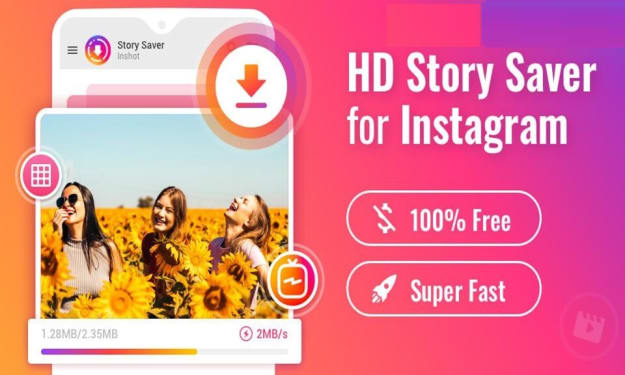Talking on a cell phone for just 30 minutes a week can raise high blood pressure risk
Use of mobile phones

The use of mobile phones has become a special part of life for modern people. It is important that you are aware of how this situation, along with the complexity of your lifestyle, will affect your health.
Talking on mobile phone for 6 six hours a week was associated with a 25 percent raised risk. Talking on Mobile phone for 6 six hours a week was associated with a 25 percent raised risk.
There are many other negative effects associated with the use of mobile phones
Smartphone addiction
An average individual spends at least five hours a day on their smartphone. This can lead to compulsive behavior, withdrawal symptoms, reduced social interaction and impaired functioning in daily life.
Musculoskeletal problems
The excessive use of a smartphone can lead to the development of back problems, neck pain, shoulder strain and text claw. These are caused by hunching over, holding the phone too close to the face, and typing or swiping with the fingers and wrists for prolonged periods.
Nerve damage
Holding the phone between the ear and the shoulder or bending the elbow to talk can compress the nerves and cause numbness, tingling or pain in the arm or hand. This condition is called cubital tunnel syndrome or cell phone elbow.
Research:-
In this large prospective study of middle-aged UK women, use of mobile phones was not associated with an increased risk of glioma, meningioma, total cancer or cancer at 18 other specific sites. They found an increased risk of acoustic neuroma in women who had used a mobile phone for 5 years or longer, with risk increasing with increasing duration of exposure.
Possible carcinogenic effects of non-ionizing radiofrequency electromagnetic fields from handheld mobile phones have been of concern for many years, with their widespread and rapidly increasing use since the late 1990s. Based on estimates of site-specific radiofrequency field dose, interest has focused on risk of tumours of the head and neck, and in particular on those of the brain and cranial nerves, including glioma, meningioma and acoustic neuroma. It has also been suggested that there may be an increase in risk of leukaemia, through exposure of bone marrow, and of malignant melanoma.
Stress depression & heart attack
Constantly checking messages, notifications, news and social media can increase stress levels and trigger anxiety or depression. Smartphones can also expose users to cyberbullying, online harassment, misinformation and negative content that can affect their mental health.
Chatting on your cell phone for just 30 minutes a week raises the risk of high blood pressure, a major cause of heart attacks and strokes, according to new research. Those who spent that time talking, even hands-free, were 12 percent more prone to hypertension.
Weight gain
Using smartphones for long hours can reduce physical activity, disrupt eating patterns and interfere with metabolism. This can lead to obesity, diabetes, cardiovascular disease and other health problems.
Sleep deprivation
Using smartphones before bed or during the night can disrupt the circadian rhythm, suppress melatonin production and interfere with sleep quality. This can cause fatigue, mood swings, impaired memory, reduced immunity and increased risk of chronic diseases.
Poor concentration
Using smartphones while studying, working or performing other tasks can distract attention, impair focus and reduce productivity. Smartphones can also overstimulate the brain and make it harder to switch off or relax.
Cognitive decline
Relying on smartphones for information, navigation, calculation and other functions can make the brain lazy and reduce its ability to think critically, creatively and independently. Smartphones can also affect memory, learning and problem-solving skills.
Eye strain
Looking at a small phone screen for long periods of time can cause screen fatigue. This is characterized by throbbing pain on the forehead, eyes and temples that can last for hours. Screen fatigue can also lead to dry eyes, blurred vision, headaches and eye diseases.
Hearing loss
Listening to loud music, videos or calls through earphones or speakers can damage the hearing cells in the inner ear and cause noise-induced hearing loss. This can result in tinnitus, ringing or buzzing in the ears, difficulty hearing conversations or sounds and increased sensitivity to noise.
Silent killer
Research:-
Prof Qin and colleagues examined the relationship among a cohort who were free of hypertension at the outset.
Information on the use of a mobile phone to make and receive calls was collected through a self-reported touchscreen questionnaire including years of use, hours per week and using a hands-free device/speakerphone.
Participants who used a mobile phone at least once a week to make or receive calls were defined as mobile phone users.
The researchers also took into account an individual's age, sex, BMI (body mass index), race, deprivation, family history of hypertension, education, smoking status, blood pressure, blood fats, inflammation, blood glucose, kidney function and use of medications to lower cholesterol or blood glucose levels.
The average age of participants was 54 years, 62 percent were women and 88 percent were mobile phone users.
Added Prof Qin said: "More research is required to replicate the results, but until then it seems prudent to keep mobile phone calls to a minimum to preserve heart health.”
Over a quarter of adults in the UK, around 14.4 million have hypertension. More than five million have not been diagnosed. Dubbed the 'silent killer', there are no symptoms.
Added Prof Qin said: "More research is required to replicate the results, but until then it seems prudent to keep mobile phone calls to a minimum to preserve heart health.”
For more information on how to reduce this risk, visit here(click)





Comments
There are no comments for this story
Be the first to respond and start the conversation.